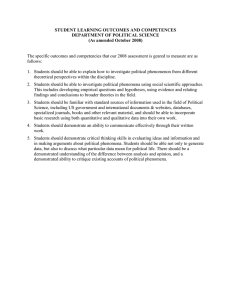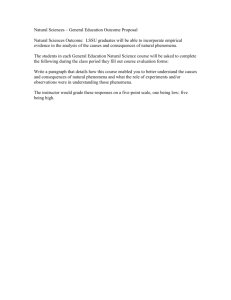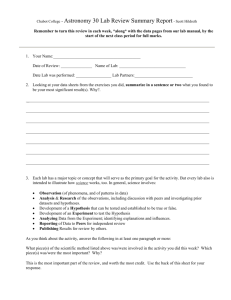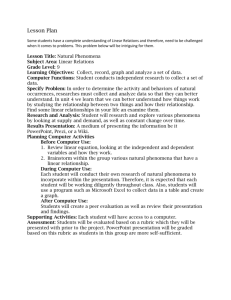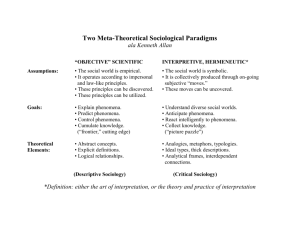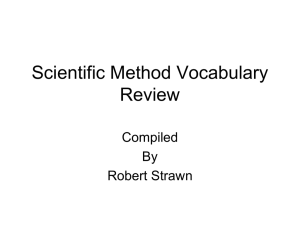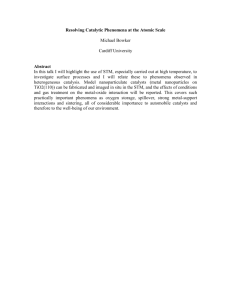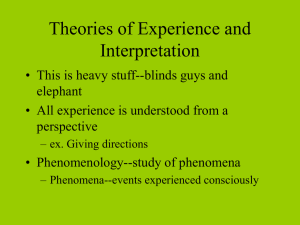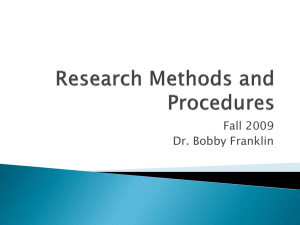controlled
advertisement
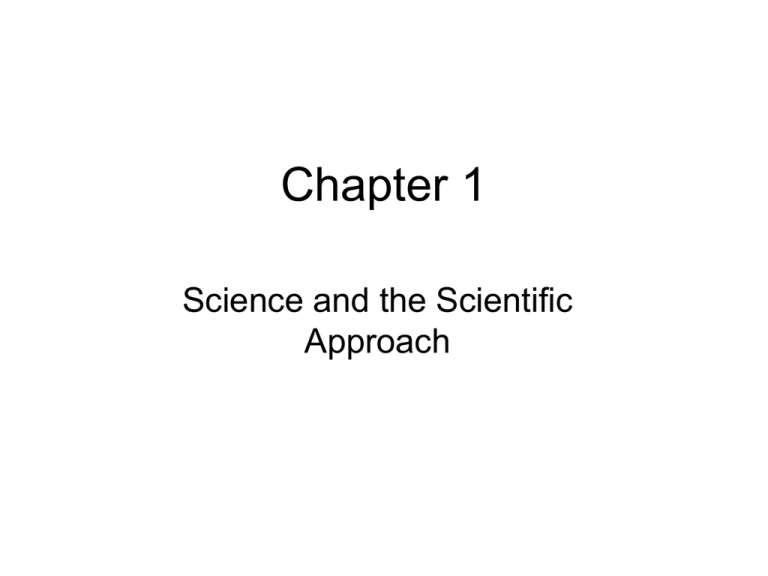
Chapter 1 Science and the Scientific Approach Science and Common Sense • Science and common sense differ sharply in five ways. These disagreements revolve around the words systematic and controlled. • 1.the use of conceptual schemes and theoretical structures are different. Serious v.s. loose fashion. • 2.Scientists systematically and empirically test their theories and hypotheses. Selection tendency • 3.Notion of control. Systematically rule out variables that are possible “cause” of the effects under study other than the variables hypothesized to be the “causes.” • 4.The scientist is constantly preoccupied with relationships among phenomena. • 5.The scientist rules out “metaphysical explanations” Four Methods of knowing • • • • 1.method of tenacity 2.method of authority 3.a priori method/method of intuition 4.method of science: self-correction, objectivity Science and Its Functions • • • • What is science is not easy to answer Three popular stereotypes Two views of science Static view: a body of fact. A way of explaining phenomena. • Dynamic view: an heuristic view. Stress problem-solving rather than facts and bodies of information. Science and Its Functions • Sampson’s two views of the science of social psychology. • Traditional (Quantitative) v.s. Sociohistorical (Qualitative): Primary goal, Philosophical position, Metaphoric statement, Methodological considerations The aims of Science, Scientific Explanation, and Theory • A theory is a set of interrelated constructs (concepts), definitions, and propositions that present a systematic view of phenomena by specifying relations among variables, with the purpose of explaining and predicting the phenomena. • Scientists do not really have to be concerned with explanation and understanding. Only prediction and control are necessary. The aims of Science, Scientific Explanation, and Theory • The prediction view of science has validity. • The notion of generality is important. Be applied to wider situation. • Theories are tentative explanations. Guiding research plan by generating testable hypotheses and organizing facts obtained from the testing of these hypotheses. A good theory is one that cannot fit all observations. Scientific Research: A Definition • Scientific research is systematic, controlled, empirical, amoral, public, and critical investigation of natural phenomena. It is guided by theory and hypotheses about the presumed relations among such phenomena. • 1.”systematic and controlled” means much confidence in research outcomes. • 2.scientific investigation is empirical. If the scientist believes something is so, that belief must somehow or other be put to an outside independent test. • 3.knowledge obtained scientifically is not subject to moral evaluation. The Scientific Approach • Dewey (1933/1991): “How We Think”. A special systematized form of all-reflective thinking and inquiry. • Problem-Obstacle-Idea: vague and/or unscientific thoughts or unsystematic hunches • Hypothesis: a conjectural statement, a tentative proposition about the relation between two or more phenomena or variables. • Reasoning-Deduction: the process of moving from a broader picture to a more specific one. • Observation-Test-Experiment: the essence of testing a hypothesis is to test the relation expressed by the hypothesis.

